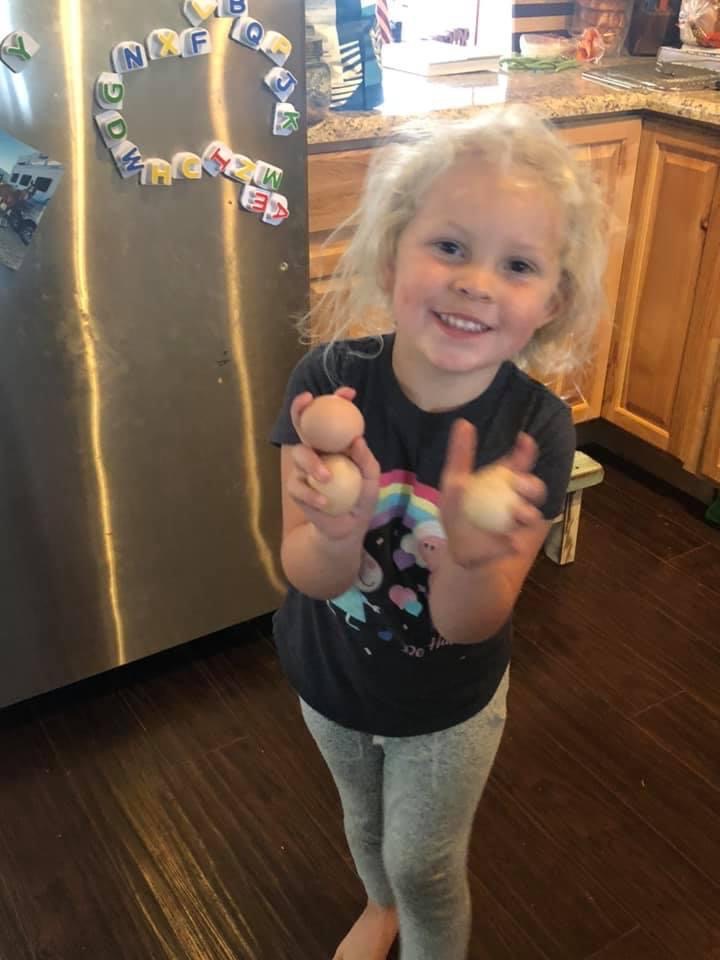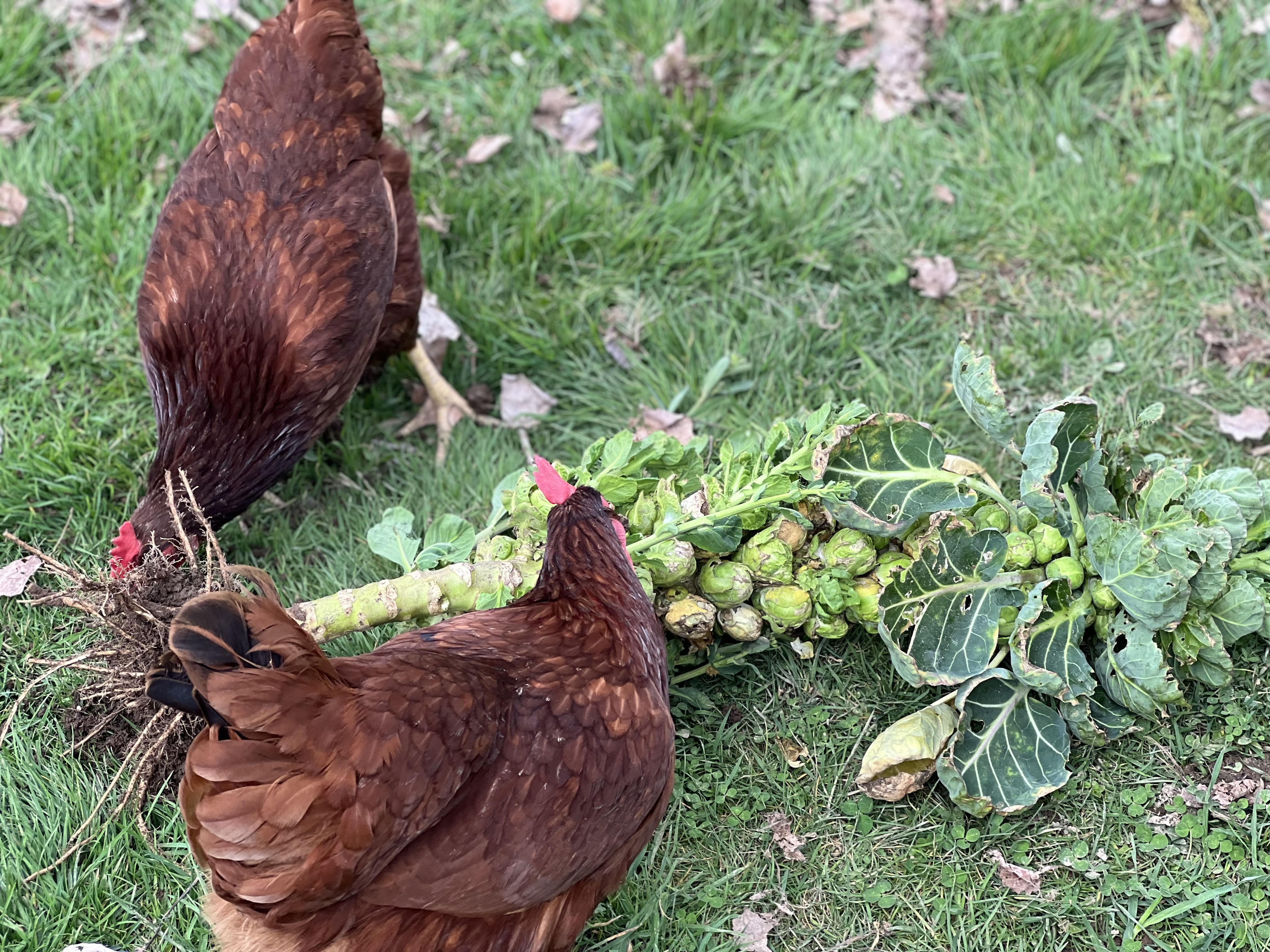The best education does not happen at a desk, but rather engaged in every day living- hands on, exploring, in active relationship with life.
Vince Gowman
I have gardened for several years now. Some successful, and some… well not successful! For quite a while I have been drawn to simpler lifestyle. One less dependent on others to provide for me and my family, and one that gives the kind of satisfaction that is not easily found in a traditional modern age lifestyle.
I used to sit in my grandpa’s office with him after we had fed horses each day and he would tell me so many stories about when he was a boy. Waking up before the sun to milk cows and feed calves, going to school and football practice, then back home to help in the garden and milk cows and feed calves again. He’d talk about his grandma going into town when the new flour sacks came out so she could use the sack (which was made of fabric) to make a new dress with the latest print. On those days, she would come home and make a pie, and she sprinkled the leftover pie dough with cinnamon and sugar, and then baked it for my grandpa and his siblings- nothing went to waste. He used to chuckle and say nobody had to go on a diet back then, and nobody had a hard time going to sleep at night because they worked so hard from sun up till sun down and ate real food. Listening to his tales of a quieter life day after day is what I credit this new adventure on, although I never thought chickens would be part of it.
The chickens came about because of our oldest daughter, Ada, and my cousin. My cousin had some hens and she watched Ada for me one afternoon when she was about 2 years old. Ada got to help gather eggs and feed the chickens and that was that. I heard about chickens every day, and while I kept waiting for the excitement to leave, it only grew stronger. So we are now the proud owners of 4 Rhode Island Red hens named Amelia Egghart, Henny Penny, Rosie Red, and Henrietta Hen, with the promise of some new hens to join us when we have more space. I had my cousin to pester with questions, because even though I have owned livestock all my life, chickens are a foreign thing to me, but some of you may not have that person to go to or you Googled… don’t do that- it’s so overwhelming! So, let’s talk about chickens!
The Benefits
The most obvious benefit of having your own flock of laying hens is eggs! Farm fresh eggs are just tastier, there is no doubt about it. I honestly am not the biggest fan of eggs, but fresh eggs I can get on board with. The eggs you buy at the store are really kind of old… like several months old! Fresh eggs also keep your baked goods fluffier.

Chicken’s eat, and therefor they produce manure. You may be thinking “How is that a benefit?” Compost! When we clean out our chicken coop we add the manure and shavings to our manure pile from our horses. You will need to turn the pile every so often with a tractor, or if you only have the chicken manure a shovel will also work, to properly compost. Chicken manure alone also composts pretty quickly, so you can have nutrient dense compost for your garden in 5-6 weeks! Composting your chicken manure can help in 2 ways- you will have less waste to deal with, and you will save money when you are getting your garden ready.
Another HUGE benefit to chickens is bug control. Did you know that chickens aren’t vegetarians? That’s why “vegetarian fed” labels on eggs in the store really bother me. It’s not natural. Our hens love scratching around in their run and getting tasty bugs and I love that the bug population is kept in check around here.
What You Need to Know
Since chickens are considered farm animals and are living, breathing creatures, there are things you need to know before jumping in head first. The very first thing you need to know is if you are even allowed to have chickens were you live. We live in the country, outside of city limits and we own our home so we were good to go. If you rent you need to check your rental agreement to be sure you are following the rules, and if you live inside city limits you need to check your cities ordinances. Some cities will allow a small number of hens but no roosters, and some don’t allow hens or roosters at all. (So sad!) Don’t forget to also check with your HOA if you have one.
If you check all of the boxes above, the next thing to consider is how much space you have to work with. As a general rule, you will need 2-3 square feet of space inside the coop and 8-10 square feet of space in the run per chicken. This will vary depending on breed as some can grow quite large, while other breeds stay on the smaller side. We bought a coop kit to get started and it has served it’s purpose, however it is too small for the breed we chose. The specs on the kit said it would comfortably house 6-8 hens, so be watchful of that. We have 4 hens and while it is technically big enough for them, I wish they had more space inside. We did make a good sized run for them, so that has helped a ton!

Speaking of coops and runs, be sure you are prepared to predator proof your chicken coop. Know the predators of your area and lock that coop up tight! Coyotes, racoons, mink, weasels, foxes, eagles and hawks, opossums, and skunks all have the potential to run of with one of your hens. Also be aware of the neighborhood dogs.
Feed cost is something to look into before you decide to head down the path to chickens as well. I can assure you that the eggs you gather from your back yard will be the most expensive eggs you ever eat if you factor in a coop build, buying your birds, and feed, however they will be the tastiest. While we are discussing cost of chicken ownership another thing to keep in the back of your mind is pet sitters. If you are a family that travels often, you will need to have someone come collect eggs and feed your chickens while you are gone. Trust me when I say, a good pet sitter is worth every single penny you pay them!
Once you’ve decided that having a flock is for you, you will need to research which breed is best for your homestead. Some breeds are naturally friendly while others are more flighty and prefer to be left alone. Egg yield is something else to research. Different breeds have higher or lower yields and you’ll want to choose the perfect hens for your family’s egg consumption.
Now you’ve decided for sure you are adding chickens to your homestead, and you have done the research on which breed is the best fit for your family. So, where do you get them? We bought our hens as baby chicks from our local feed store. Most feed stores will have chicks in the spring and into early summer, and they will usually post a list of which breeds will be in on any certain week, so be sure to find them on social media. Another option is buying older hens from someone who is looking to replace some of their flock. These birds can sometimes cost more, and could be slowing down with laying. A hen’s most productive time for egg laying is the first 2 years of her life, so keep that filed away while you are shopping. The benefits of buying older hens is you will have eggs right away so long as they are still in the productive years. When you buy chicks you will have to be patient as it takes 18-20 weeks for them to start laying.
Happy Chicken-ing
I truly hope if you are able, that you give chicken ownership a go. It is fun, the eggs are top notch, and I don’t know if you’ve wandered the egg aisle at the grocery store lately, but that’s some slim pickens for sure!

Just a couple more side notes to leave you with-
The space needed for chickens that I referenced above is a great starting point, but the more room your hens have, the happier they will be. More space to themselves (but they are a social bird so you will need more than 1), plus more bugs! Overcrowding can also lead to disease and feather picking and nobody wants that in their flock.
Lastly, when garden season is over, let your hens free range (if it is safe to do so) in your garden space. They will pull up weeds, eat overripened produce, and while scratching for bugs they will mix and work your soil.
Aren’t chickens wonderful?
~Tara
